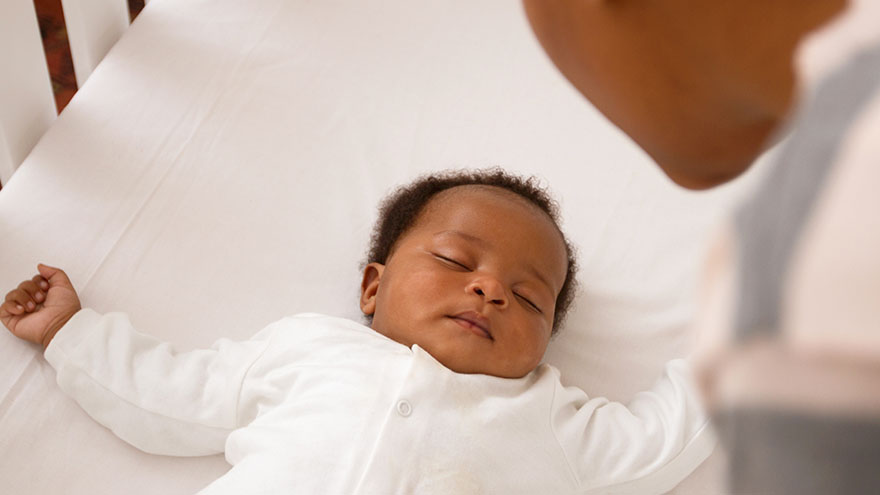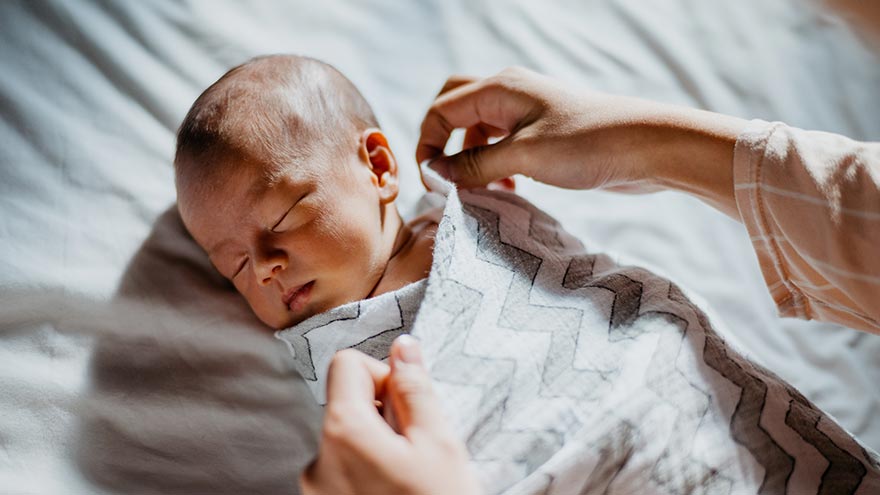Importance of Safe Sleep
By: Chris Marlo
June 22, 2023

In today's fast-paced society, it is understandable for parents to want to take shortcuts in caring for their little ones. A s a result, It is tempting to leave a sleeping infant in a car seat or swing after a long day of errands or when you need a moment to catch your breath. But, as convenient as these devices may be, they pose a serious risk to your child's safety.
Why Car Seats and Swings Pose Risks for Infant Sleep
Car seats, swings, and bouncers are quick and convenient ways to feed, hold, and sleep an infant. Not out of malice or discontent, but again from the need for quick and easy access to baby care in an already busy lifestyle. However, the risks outweigh the benefits. The American Academy of Pediatrics (AAP) states that “infants should be moved to a crib, bassinet, or play yard for sleeping as soon as is practical.” If a parent must use a car seat or other sitting device, they should only do so for a short period of time and never as a substitute for a proper sleeping environment.
Leaving a sleeping infant in a sitting device, such as a car seat or swing, can create unsafe sleeping conditions. The American Academy of Pediatrics (AAP) warns that doing so increases the risk of sudden infant death syndrome (SIDS) and positional asphyxia. This is because infants can easily slump over or become entangled in the straps, blocking their airway, and causing suffocation.
Car seats, swings, and bouncers are quick and convenient ways to feed, hold, and sleep an infant. Not out of malice or discontent, but again from the need for quick and easy access to baby care in an already busy lifestyle. However, the risks outweigh the benefits.
The AAP states:
- Infants should be moved to a crib, bassinet, or play yard for sleeping as soon as is practical.
- If a parent must use a car seat or other sitting device, they should only do so for a short period and never as a substitute for a proper sleeping environment.
Leaving a sleeping infant in a sitting device, such as a car seat or swing, can create unsafe sleeping conditions. The AAP warns that doing so increases the risk of sudden infant death syndrome (SIDS) and positional asphyxia. In addition, infants can easily slump over or become entangled in the straps, blocking their airways and causing suffocation.
Safe Sleep
The American Academy of Pediatrics recommends an infant safe sleep environment include: a safety-approved crib, bassinette and/or Pack-N-Play; an appropriately fitting mattress; a fitted crib sheet; and that the sleep area remains uncluttered of toys, stuffed animals, and blankets or bumpers.
Expert-Backed Safe Sleeping Practices
As new parents, we want nothing more than to keep our babies safe. But it is not always easy to know what is best, especially when we are faced with the challenges of daily life. That is why it is so important to stay informed about safe sleeping practices for infants.
According to the AAP, the safest sleeping environment for infants is:
- A firm, flat surface with no soft objects, loose bedding, or other hazards.
- Infants should always be placed on their back to sleep, and they should never be left unattended in a sitting device or other position that could cause them to slouch or slump over.
Of course, we all want to make our lives a little easier. But when it comes to our children's safety, there are no shortcuts. It may be tempting to leave a sleeping infant in a car seat or swing, but doing so puts them at risk of serious harm. Instead, take the time to create a safe sleeping environment for your child, even if it means a little extra effort on your part. Remember, letting sleeping babies lie is not just a cliché – it is a critical part of keeping them safe and healthy.
Additional Resources:
Watch Nationwide Children’s Hospital video about back sleeping and the proper flow of spit up when the baby is in the supine (correct position: laying on back) and prone (incorrect position: laying on stomach) positions.
Cribs for Kids (C4K) teaches safe sleep techniques based on best practice recommendations by the American Academy of Pediatrics, C4K National and National Institute of Health and Human Development.

